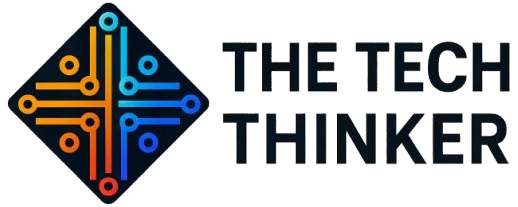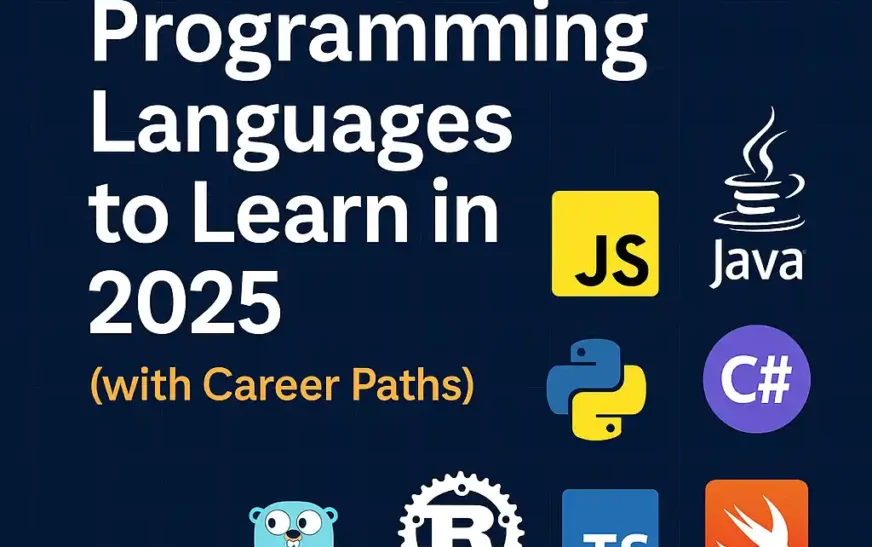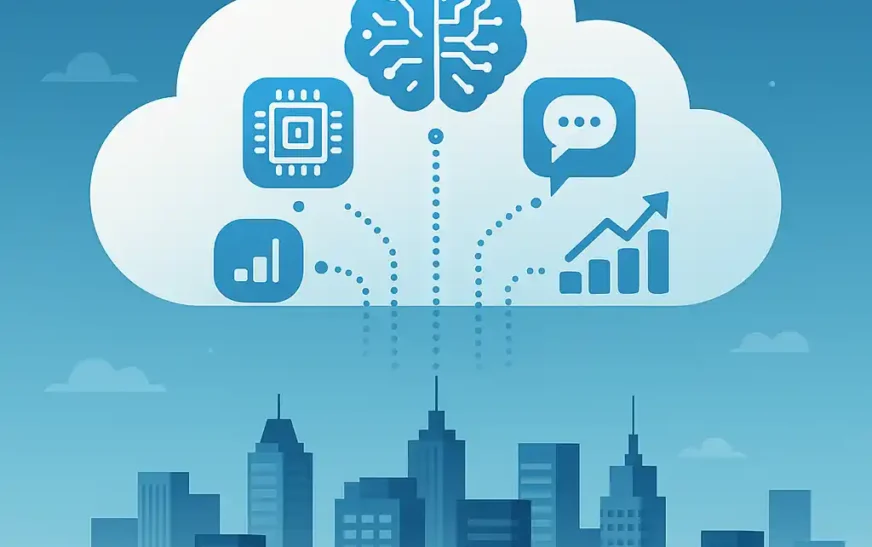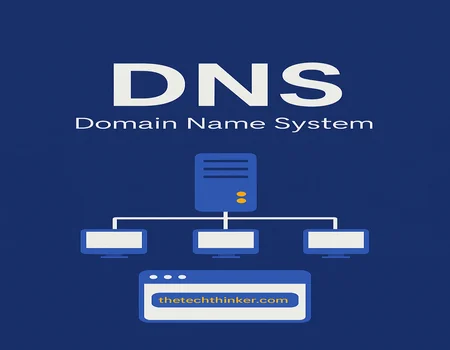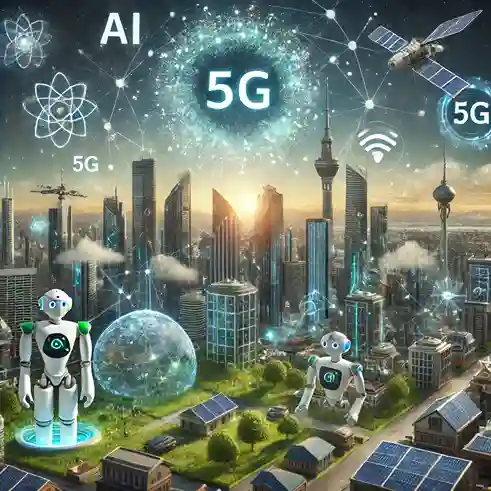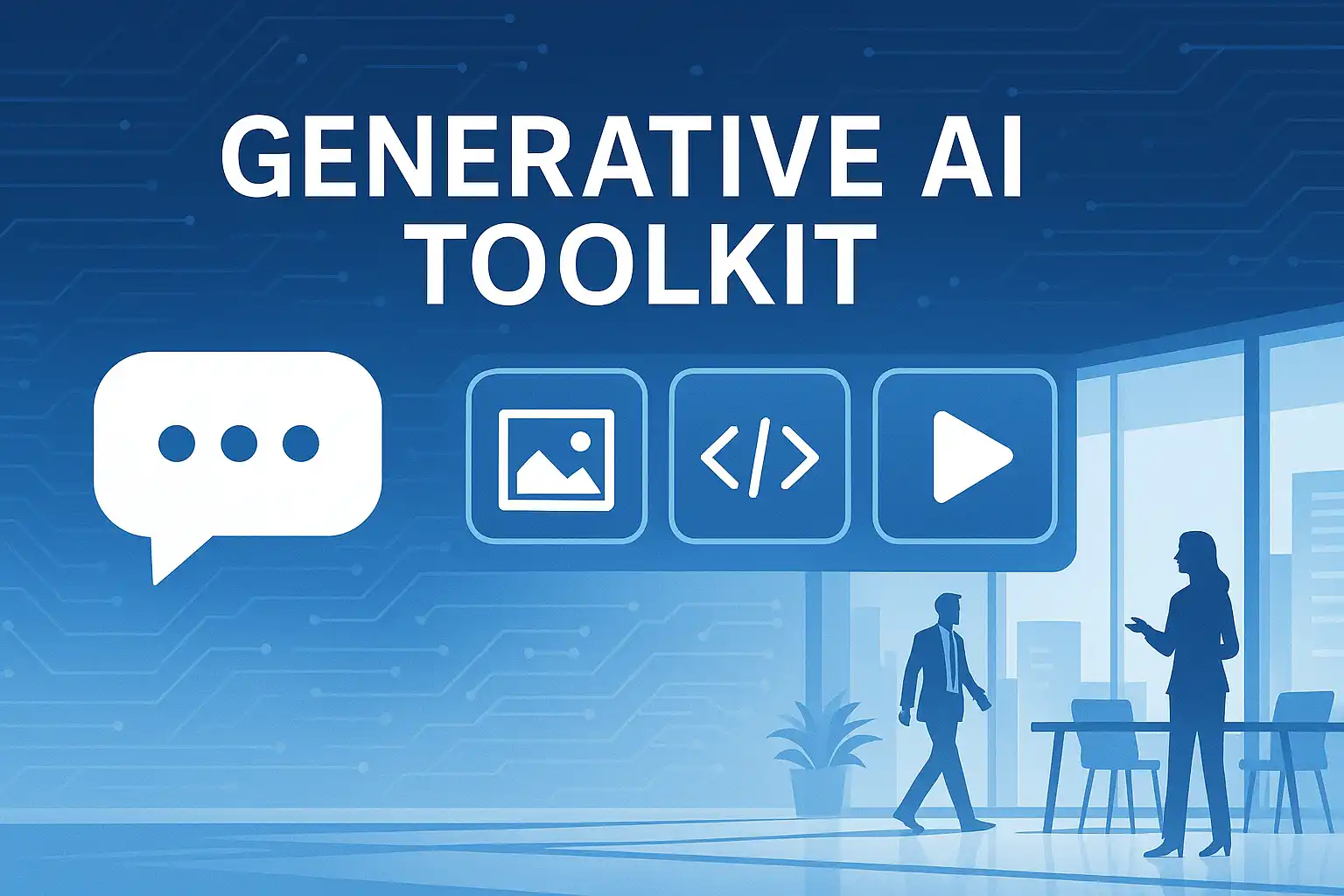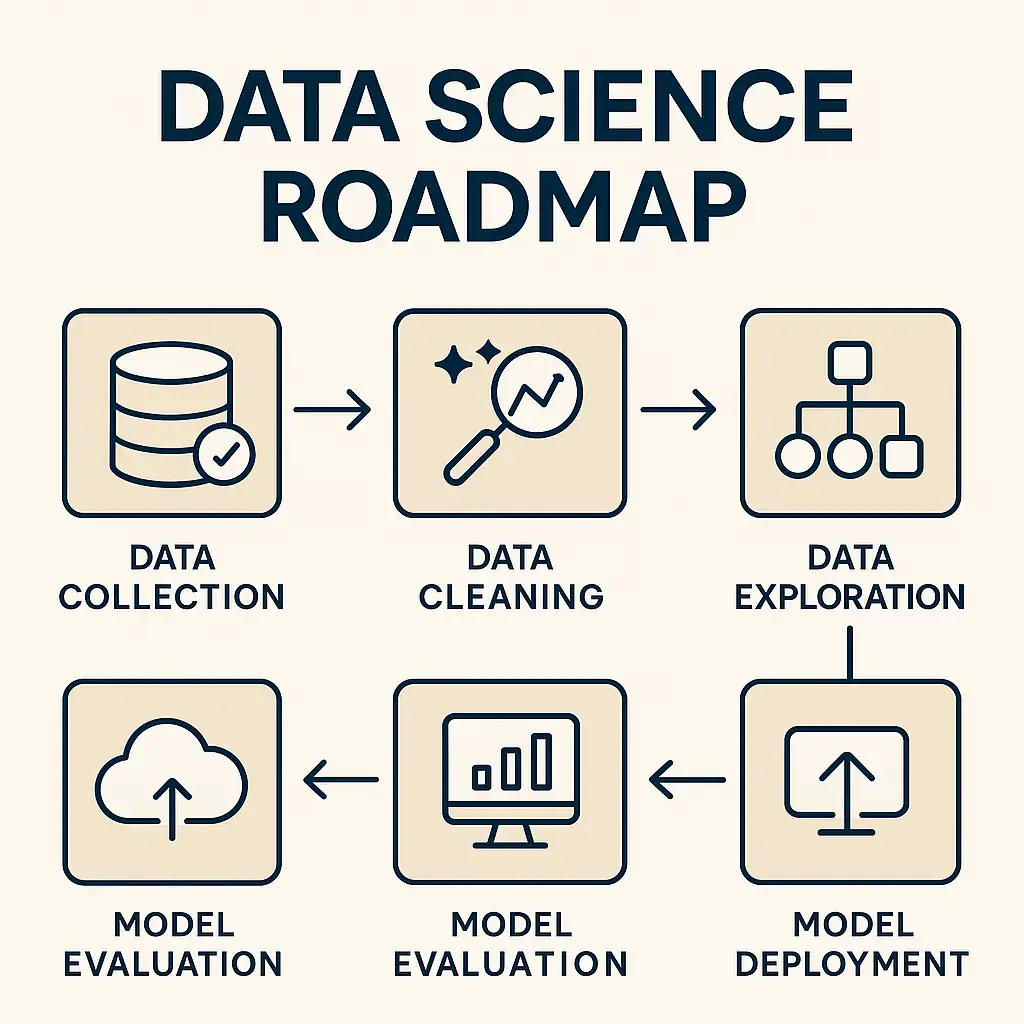Why Learning the Right Programming Language in 2025 Matters
Choosing the best programming languages to learn in 2025 isn’t just about popularity—it’s about career alignment, tech stack evolution, and global job demand.
Why it really matters:
-
-
AI and automation are changing the hiring landscape
-
-
New grads are competing globally — language choice can give you the edge
-
Tech stacks are increasingly hybrid: backend, frontend, DevOps, AI, data — all need different tools
-
Developers are expected to learn faster and deliver quicker — syntax simplicity matters
⚠️ Tip: If you’re like me — a mechanical engineer turned AI/ML professional — you’ll realize that the first language you choose can shape your mindset for all future tech skills.
Best Programming Languages to Learn in 2025
Let’s now break down the top languages, not just based on hype — but on real-world use, job data, growth trends, and how beginners or career-switchers can benefit.
Python
Why it’s a top choice:
-
Powers over 80% of AI/ML projects worldwide
-
Top-ranked in IEEE, GitHub, and TIOBE Index
-
Beginner-friendly syntax makes it ideal for non-IT learners
Use Cases:
-
Data Science, AI & Machine Learning
-
Web apps (Flask/Django)
-
Automation scripts (Selenium, PyAutoGUI)
-
APIs and REST services
Real-World Insight:
-
Used by Google, Netflix, NASA, CERN
-
Dominates Kaggle and AI competitions
-
You can become job-ready in 6–9 months with Python + tools like Pandas, NumPy, scikit-learn
Career Paths:
-
Data Scientist
-
AI Engineer
-
Backend Python Developer
-
Automation Analyst
JavaScript
Why it dominates web dev:
-
Runs on 98% of browsers
-
Key to interactive UIs and modern frontend
-
Also works server-side (Node.js)
Use Cases:
-
Frontend development (React, Angular, Vue)
-
Backend APIs with Node.js
-
Cross-platform apps (React Native)
-
Progressive Web Apps
Industry Insight:
-
Every startup, eCommerce site, and SaaS company needs JS
-
Companies like Meta, Airbnb, and PayPal rely on JavaScript-heavy stacks
Career Paths:
-
Frontend Developer
-
Full Stack Developer
-
JavaScript Engineer
-
UI/UX Developer
Java
Why enterprises still love Java:
-
Mature, secure, and backed by Oracle
-
Used in banking, insurance, Android, big data, IoT
Use Cases:
-
Enterprise backend systems
-
Android apps
-
Real-time finance systems
-
IoT platforms (Java ME)
Industry Stats:
-
Still among top 5 languages in job listings globally
-
90% of Fortune 500 firms use Java
Career Paths:
-
Java Backend Engineer
-
Android Developer
-
DevOps using Spring Boot
C#
Why it’s ideal for game dev & desktop apps:
-
Core language for Unity3D
-
Great for building internal tools and cross-platform apps
Use Cases:
-
Game Development (Unity engine)
-
Windows GUI and services
-
AR/VR prototypes
-
Desktop software using WPF or MAUI
Career Paths:
-
Unity Game Developer
-
.NET Software Engineer
-
Windows Developer
Go (Golang)
Why Go is growing fast:
-
Created by Google for simplicity + speed
-
Loved for its concurrency model and clarity
Use Cases:
-
DevOps tools (Kubernetes, Terraform)
-
Backend APIs
-
Serverless applications
-
Command-line tools
Career Paths:
-
Cloud Backend Developer
-
DevOps/Infrastructure Engineer
-
SRE (Site Reliability Engineer)
Rust
Why Rust is “the new C++”:
-
Memory safety with performance
-
Used in systems where security is key
Use Cases:
-
Operating systems and OS modules
-
Blockchain nodes
-
Performance-critical apps
Adoption Insight:
-
Backed by Mozilla, Dropbox, Amazon
-
Replacing C++ in secure system development
Career Paths:
-
Systems Engineer
-
Blockchain Developer
-
Embedded Systems Programmer
TypeScript
Why TS is replacing JS in teams:
-
Adds type safety + maintainability
-
More suitable for large-scale apps
Use Cases:
-
Enterprise-grade frontend projects
-
Cross-platform apps (React, Next.js)
-
Type-safe APIs
Career Paths:
-
TypeScript Frontend Dev
-
Full Stack Engineer
-
App Performance Optimizer
Kotlin
Why Android teams love it:
-
Official Android dev language
-
Cleaner and safer than Java
Use Cases:
-
Mobile apps for Android
-
Server-side dev with Ktor
-
Multiplatform apps with Kotlin Native
Career Paths:
-
Android Developer
-
Mobile App Engineer
-
Kotlin Backend Dev
Swift
Why Swift is key for Apple devs:
-
Apple’s official language for all iOS/macOS devices
-
High-paying, high-barrier market
Use Cases:
-
iPhone/iPad apps
-
macOS software
-
SwiftUI-based cross-platform apps
Career Paths:
-
iOS Developer
-
Swift Engineer
-
Apple App Consultant
SQL
Why SQL still matters:
-
The “must-know” for data-related roles
-
Used in 90% of business platforms
Use Cases:
-
Data warehousing
-
Analytics dashboards
-
BI tools
-
Backend DB logic
Career Paths:
-
Data Analyst
-
BI Developer
-
Database Engineer
-
Reporting Analyst
Emerging Languages in 2025
These languages are small but growing:
-
Dart – Mobile with Flutter, backed by Google
-
Solidity – For Ethereum smart contracts
-
Julia – Scientific, math-heavy AI
-
Shell Scripting – Still essential in DevOps
Language Trends and Industry Demands
-
Python + SQL dominate AI/data hiring
-
JS/TS remain mandatory in frontend hiring tests
-
Go & Rust are gaining in cloud and blockchain startups
-
Swift/Kotlin developers still command top salaries due to mobile app demand
How a Mechanical Engineer Transitioned to AI/ML
From CAD and thermodynamics to TensorFlow and Pandas — I made the switch.
Here’s what worked for me:
-
Learned Python from a data perspective (NumPy, Matplotlib first)
-
Focused on use-case coding, not syntax memorization
-
Completed small but meaningful projects: image classifier, chatbot, stock predictor
-
Integrated SQL, Git, and Jupyter into my workflow
-
Used YouTube, Kaggle, Coursera—not expensive bootcamps
How to Choose the Best Programming Language for You
Don’t get stuck in “which is best” debates. Choose based on:
-
✅ Your career interest (Web, Data, AI, Cloud, Mobile, Games)
-
✅ Job availability in your country or remote market
-
✅ Stack used by companies you want to join
-
✅ Community, tutorials, GitHub activity
-
✅ Language that “clicks” with your mindset
Summary Best Programming Languages 2025
-
Python – AI/ML, Data Science, Automation
-
JavaScript – Web development frontend/backend
-
Java – Android, banking, enterprise software
-
C# – Game dev, Windows apps
-
Go – Cloud services, microservices
-
Rust – Security-focused systems
-
TypeScript – Scalable frontend engineering
-
Kotlin – Mobile development
-
Swift – iOS/macOS app dev
-
SQL – Data querying and BI
🔍 Best Programming Languages 2025 – Comparison
| Language | Best For | Learning Curve | Job Demand (2025) | Salary Potential | Ease for Beginners |
|---|---|---|---|---|---|
| Python | AI/ML, Data Science, Automation | Easy | Very High | High | Excellent |
| JavaScript | Web Development (Frontend + Backend) | Moderate | Very High | High | Good |
| Java | Enterprise Apps, Android | Moderate | High | High | Moderate |
| C# | Game Dev, Windows Apps | Moderate | Moderate | Moderate | Moderate |
| Go | Cloud, DevOps, Microservices | Moderate | High | High | Moderate |
| Rust | Secure Systems, Blockchain | Hard | Moderate | Very High | Low |
| TypeScript | Scalable Frontend Apps | Moderate | High | High | Good |
| Kotlin | Android Development | Moderate | High | High | Good |
| Swift | iOS/macOS Apps | Moderate | High | Very High | Good |
| SQL | Data Analysis & Querying | Easy | Very High | Moderate | Excellent |
📚 Best Programming Languages to Learn in 2025 – Based on Learning Goals
Choosing the best programming languages to learn in 2025 depends not just on job roles, but your personal learning style and goals.
For Visual Learners:
-
JavaScript (can visualize UI changes immediately)
-
Python (Jupyter Notebooks help you learn step by step)
For Logical Thinkers:
-
Go (clean structure, low boilerplate)
-
Rust (strict compiler, improves logic)
For Project Builders:
-
Kotlin (mobile apps)
-
Node.js (backend + frontend)
Learning becomes easier when the language aligns with how you think.
📉 Languages Losing Popularity vs. Best Programming Languages to Learn in 2025
While we talk about the best programming languages to learn in 2025, it’s equally important to understand which ones are declining in relevance.
Languages losing momentum:
-
Perl – outdated scripting
-
Objective-C – replaced by Swift
-
Visual Basic – legacy only
-
Ruby – declining startup adoption
Focusing on modern, community-backed languages gives you better job security and future-proof skills.
📈 Stack Combinations Using the Best Programming Languages to Learn in 2025
Companies don’t use one language — they use stacks. Here’s how you can build skill sets using the best programming languages to learn in 2025 as part of complete technology stacks.
Popular stacks in 2025:
-
MERN Stack – MongoDB, Express, React, Node.js (JavaScript + TypeScript)
-
Python Stack – Python, FastAPI, PostgreSQL
-
Go + React – For cloud-native, scalable apps
-
Kotlin + Firebase – For modern Android apps
This helps you become a full project developer, not just a coder.
💬 Best Programming Languages to Learn in 2025 – Based on Community Support
A powerful reason to choose the best programming languages to learn in 2025 is the strength of their developer communities.
Strongest communities:
-
Python – massive community on Stack Overflow, GitHub, Kaggle
-
JavaScript – huge support across dev tools and frameworks
-
Rust – very active and welcoming community
-
Go – backed by Google, with strong cloud community
A strong community helps you debug faster, find jobs, and grow quicker.
💼 Real Companies Hiring for the Best Programming Languages to Learn in 2025
Here’s how top companies align with the best programming languages to learn in 2025:
Companies and Language Demand:
-
Google – Python, Go, JavaScript
-
Meta – React (JavaScript), Hack, Python
-
Microsoft – C#, TypeScript, Rust
-
Apple – Swift, Objective-C
-
Amazon – Java, Python, Go
Learning languages based on target employers helps tailor your resume and portfolio.
🧑💻 How to Build a Portfolio with the Best Programming Languages to Learn in 2025
Knowing theory isn’t enough. To get hired, you need a portfolio. Here’s how to build one using the best programming languages to learn in 2025:
Example Projects:
-
Python: AI chatbot, web scraper, data dashboard
-
JavaScript: To-do app, eCommerce frontend
-
Go: REST API with concurrency
-
Kotlin: Personal expense tracker (Android)
-
SQL: Data dashboard using public dataset
Showcase your skills with GitHub, resume links, and mini case studies.
🌐 Best Programming Languages to Learn in 2025 for Building Your Own Startup
If your goal is to become a tech entrepreneur, the best programming languages to learn in 2025 should offer:
-
Rapid development
-
Scalability
-
Large talent pool for hiring
-
Low cost of deployment
Startup-friendly picks:
-
Python (MVPs, automation, AI tools)
-
JavaScript/TypeScript (frontend/backend in one language)
-
Go (scalable backend systems)
-
Dart (mobile-first startups)
Startups need devs who can do more with less — these languages deliver.
🏁 5-Month Plan to Master the Best Programming Languages to Learn in 2025
Want a structured plan to learn fast? Here’s how you can master any of the best programming languages to learn in 2025 in just 5 months:
Month 1:
-
Basics + syntax
-
Install tools and IDEs
-
Start simple CLI projects
Month 2:
-
Build CRUD apps
-
Learn Git + GitHub
-
Follow project-based tutorials
Month 3:
-
Master 1–2 frameworks
-
Take one big project idea
Month 4:
-
Add SQL or frontend pairing
-
Optimize + debug
Month 5:
-
Push to GitHub
-
Resume + LinkedIn + apply to jobs
Follow this for Python, JavaScript, Kotlin, or Go and you’re ready for real-world work.
🔗 External DoFollow Links for Programming Languages (2025)
| Language | Official Website / Resource |
|---|---|
| Python | https://www.python.org |
| JavaScript | https://developer.mozilla.org/en-US/docs/Web/JavaScript |
| Java | https://www.oracle.com/java/technologies/ |
| C# | https://learn.microsoft.com/en-us/dotnet/csharp/ |
| Go | https://go.dev |
| Rust | https://www.rust-lang.org |
| TypeScript | https://www.typescriptlang.org |
| Kotlin | https://kotlinlang.org |
| Swift | https://developer.apple.com/swift/ |
| SQL | https://www.w3schools.com/sql/ (educational) |
| or https://www.postgresql.org/docs/ (real-world usage) |
🔍 Top 15 Most Searched FAQs – Best Programming Languages 2025
1. What are the best programming languages to learn in 2025?
In 2025, employers are seeking versatile, scalable, and future-proof skills. These languages dominate in hiring, project adoption, and community activity.
Top languages to learn:
-
Python (AI, Data, Automation)
-
JavaScript (Web development)
-
Java (Enterprise + Android)
-
Go and Rust (Cloud + systems)
-
SQL (Data querying)
-
Swift and Kotlin (Mobile apps)
2. Which programming language has the highest salary in 2025?
Salary depends on demand vs. supply. As of 2025, niche and modern languages offer higher pay due to specialization.
Highest-paying languages:
-
Rust (system-level roles)
-
Go (DevOps, cloud tools)
-
Swift (iOS apps)
-
TypeScript (scalable web apps)
-
Kotlin (Android)
3. Which language is best for beginners in 2025?
If you’re just starting, go with languages that are readable and flexible across industries.
Beginner-friendly picks:
-
Python (simple syntax)
-
JavaScript (instant web results)
-
SQL (must-have for data roles)
-
Kotlin (modern, safe syntax)
4. Which programming language should I learn for AI/ML?
AI/ML relies heavily on Python due to its ecosystem, simplicity, and vast libraries.
Best for AI/ML:
-
Python (TensorFlow, PyTorch)
-
R (statistics-heavy use cases)
-
Julia (numerical computing)
5. Which programming language is best for web development?
Web development in 2025 is JS-driven with strong backend options.
Frontend:
-
JavaScript
-
TypeScript
-
React/Vue (frameworks)
Backend:
-
Node.js (JavaScript)
-
Go (fast APIs)
-
Python (Django, Flask)
6. Which language is best for mobile app development?
Native and cross-platform mobile apps are dominated by Swift and Kotlin.
Mobile leaders:
-
Kotlin (Android, official)
-
Swift (iOS/macOS, official)
-
Dart (Flutter, cross-platform)
7. Which languages are used in data science and analytics?
Data-focused roles require querying and analytical scripting.
Best for data:
-
Python (data pipelines, ML)
-
SQL (databases, dashboards)
-
R (academic/finance use cases)
8. Which language should I learn to become a backend developer?
Backend developers need performance, scalability, and API skills.
Top backend languages:
-
Java (enterprise APIs)
-
Python (Flask, FastAPI)
-
Go (concurrency and speed)
-
Node.js (JavaScript runtime)
9. Is C++ still relevant in 2025?
Yes, especially in legacy systems, embedded software, and game engines.
Used in:
-
High-performance apps
-
Game engines (Unreal)
-
IoT and robotics
-
Security software
10. What programming languages are used in DevOps and cloud?
Cloud-native and DevOps roles prioritize automation and lightweight languages.
Best for DevOps:
-
Go (Kubernetes, Docker)
-
Python (scripting, IaC)
-
Bash/Shell (automation)
-
YAML (config scripting)
11. What is the fastest-growing programming language in 2025?
Languages like Rust and Go are growing due to modern architecture needs.
Fastest growing:
-
Rust (security and performance)
-
Go (cloud-native)
-
TypeScript (enterprise web)
-
Dart (Flutter adoption)
12. Which programming language is best for career changers in 2025?
If you’re from a non-CS background (like mechanical or civil engineering), choose languages that are simple yet powerful.
Best for career switchers:
-
Python (clear syntax + broad use)
-
SQL (core for data roles)
-
JavaScript (visible results, quick wins)
13. What language should I learn for freelancing and remote work?
Freelancers need in-demand, project-ready languages.
Freelance favorites:
-
JavaScript + React (web)
-
Python (data scripts, automation)
-
PHP (legacy website updates)
-
Swift (freelance iOS gigs)
14. What languages do big tech companies use?
Major tech firms use a mix of stable and modern languages for performance and productivity.
Popular at FAANG and top tech:
-
Python (AI/ML, tooling)
-
Go (cloud services)
-
Java (backend scale)
-
TypeScript (web apps)
-
C++ (system internals)
15. How many programming languages should I learn in 2025?
Start with one that fits your goal. Then, expand to complement your tech stack.
Smart learning path:
-
1 primary language (Python or JavaScript)
-
1 secondary (SQL or TypeScript)
-
Add Go, Kotlin, or Swift based on domain
🚀 Ready to Start Your Programming Journey?
At The Tech Thinker, we don’t just list trends — we help you take action.
Whether you’re a beginner, a career switcher from mechanical engineering (like I was), or a developer aiming for the next big thing — choosing the best programming languages in 2025 is your first step.
💡 Here’s what you can do next:
-
✅ Bookmark this guide — we update it regularly with market trends
-
✅ Check our in-depth tutorials and tool reviews
-
✅ Explore our upcoming courses, hand-picked for real career growth
-
✅ Connect with our tech community — because learning is better together
🎯 Your future in tech doesn’t start someday. It starts today.
👉 Visit our Tools & Learning Hub
👉 Explore More Career Guides
Stay sharp. Stay relevant. Stay thinking.
— The Tech Thinker Team
🔗 Suggested Internal Links
- AI-as-a-Service (AIaaS): Powerful AI for Businesses 2025
- All About Data Science – Complete 2025 Roadmap to a High-Paying Career
- The Definitive Generative AI Toolkit for Businesses in 2025
- 2024: A Recap of the Biggest Tech Breakthroughs and Trends
- PaLIGemma 2: How This Vision-Language AI is Transforming Industries?
